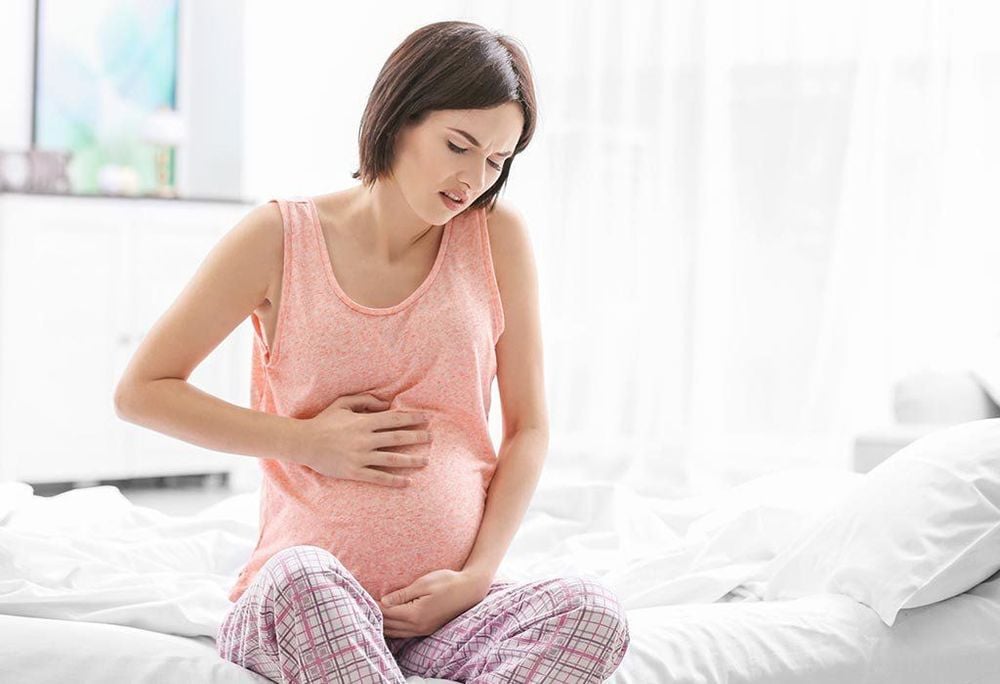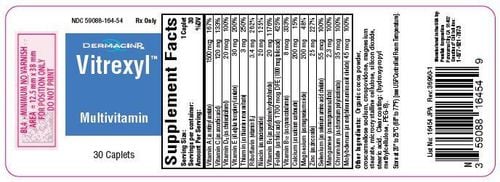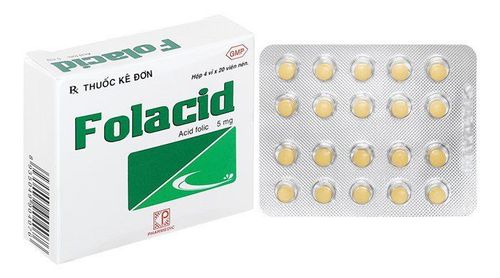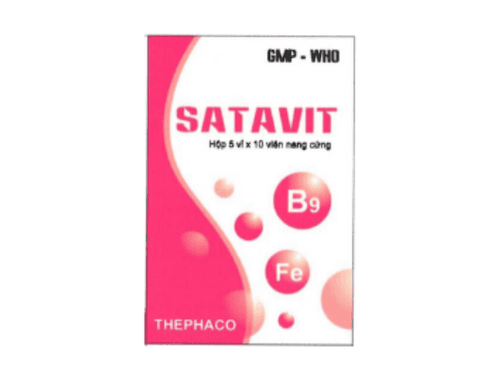This is an automatically translated article.
The article was written by Master, Doctor Nguyen Nhu Thu Truc - Obstetrician and Gynecologist - Department of Obstetrics and Gynecology - Vinmec Nha Trang International General Hospital.
Anemia in pregnant women is an important public health problem in many countries. A survey by the National Institute of Nutrition showed that 36.8% of pregnant women in Vietnam are anemic during pregnancy. Anemia in pregnant women has serious consequences for both mother and fetus.
1. Anemia in pregnant women
According to the World Health Organization WHO, currently about 30% of the world's population suffers from anemia, mainly iron deficiency anemia. Women and children are the most common sufferers of anemia. Anemia in pregnant women is an important public health problem in many countries. A survey by the National Institute of Nutrition showed that 36.8% of pregnant women in Vietnam are anemic during pregnancy.
Anemia in pregnant women often manifests as fatigue and weakness, hair loss, pale nails and mucous membranes of the mouth, lips, eyes, in severe cases, the face is white and blue, light edema, loss of strength, dizziness in the head, ringing in the ears. Heart palpitations, shortness of breath, poor appetite, full stomach, loose bowel movements
Pregnant women are considered gestational anemia when the hemoglobin (Hb) level in the blood is low <11g/dl.
There are many possible causes of anemia but the most common in pregnant women is iron deficiency anemia. This is a condition in which the body does not have enough iron needed to make Hemoglobin - an important protein of red blood cells.
Anemia in pregnant women not only adversely affects pregnant women but also causes many bad consequences for children later. Therefore, maintaining hemoglobin within normal limits is very important.
2. Effects on pregnant women

Anemia in pregnant women causes a lack of oxygen in the organs, especially in some organs such as the heart, brain, etc., which can cause severe consequences for the mother and the baby.
For mother: Easy miscarriage, placenta previa, placental abruption, gestational hypertension, preeclampsia, premature rupture of membranes, postpartum hemorrhage, postpartum infection.
For children: Low birth weight, preterm birth, fetal distress, prolonged resuscitation treatment, more susceptible to neonatal diseases than children without anemia. Children of mothers with gestational anemia in early pregnancy have a higher risk of cardiovascular disease than other children.
Therefore, doctors have considered anemia and iron deficiency during pregnancy as an obstetric threat.
3. Effects on the fetus
Babies born to mothers with anemia in pregnancy are also prone to anemia, low birth weight, preterm birth, fetal distress, increased risk of neonatal diseases than normal. Iron-deficiency anemia in infants can have long-term effects on brain development and its consequences can further impair the child's ability to learn due to defects in myelin formation due to deficiency. iron. Children of mothers with gestational anemia in early pregnancy have a higher risk of cardiovascular disease than other children into adulthood.
With mild anemia, there will be nothing dangerous for both mother and baby, only discomfort in the anemia pregnant woman is a little dizzy, but for pregnant women with severe anemia, there are many special risks. Dangers for both mother and baby such as: increased risk of miscarriage, placenta previa, placental abruption, gestational blood pressure, preeclampsia, premature rupture of membranes, risk of postpartum hemorrhage, postpartum infection. In addition, the problem of postpartum hemorrhage will pose a serious risk to the mother's life with anemia during pregnancy.

While in the mother's womb, the fetus's body has begun to store iron to form hemoglobin after birth. The normal amount of iron storage of a full-term newborn is 250-300mg, this amount is enough for hematopoietic needs 3-4 months after birth. If the amount of iron stored is not enough (due to premature birth, twins, maternal anemia during pregnancy) it is easy to develop iron deficiency anemia in the newborn. Furthermore, after birth, breast milk is the only source of iron. Although breast milk has little iron, it is completely absorbed by the baby's body. If the baby is not breastfed enough, iron deficiency will lead to anemia. In particular, if the child is not breastfed, but eats formula milk (cow's milk) and is allergic, there may be chronic anemia.
To ensure the safety of both mother and baby to avoid anemia, during pregnancy, mothers need to eat enough, give priority to iron-rich foods such as beef, eggs, milk and get proper rest to avoid premature delivery. .
Please dial HOTLINE for more information or register for an appointment HERE. Download MyVinmec app to make appointments faster and to manage your bookings easily.














